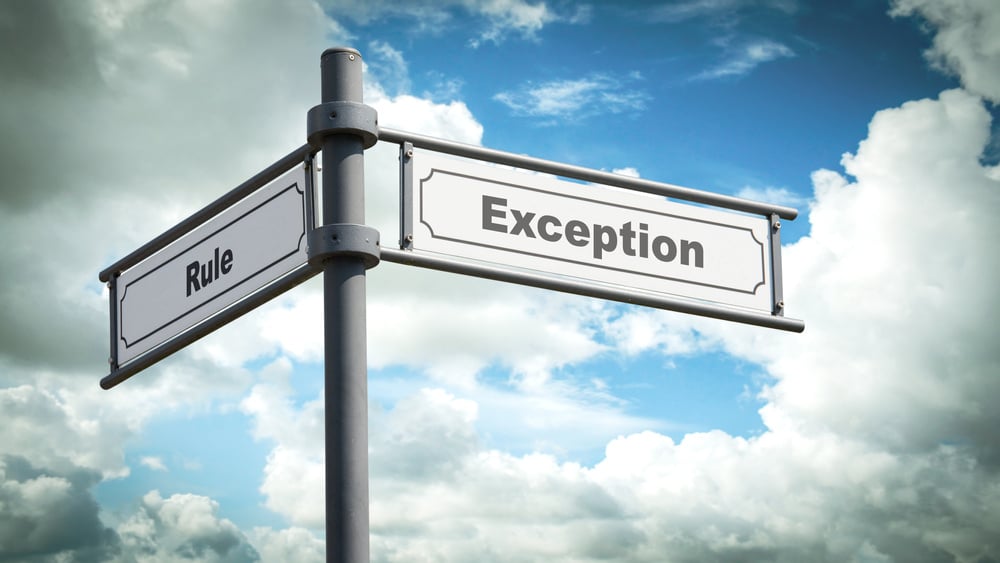An HOA board may get pushback from members in the association when it comes to rule violations. Members will get a violation letter and they'll respond back with, "How come I'm getting a violation letter when my neighbor is doing the exact same thing? You're not treating everyone the same?"
First, the member may not know that their neighbor is also receiving violation letters, but regardless, in an HOA everyone should be held to the same level of the rules and accountable to follow them. People shouldn’t be treated differently within the association. This is known as selective enforcement.
The short answer is no – the HOA cannot have different rules for different members. The same rules apply to everyone and it's the board's responsibility to make sure that they’re treating all members who live in the association, the same.
Enforcing the rules fairly should be a priority of the board
Associations have rules to preserve the appearance of the community, protect the value of the common property and individual homes, and make the neighborhood more harmonious for everyone living there.
Rules & regulations only work if they’re administered fairly across the entire community. Your Board can't selectively pick which rules to enforce and which ones not to. You also must ensure that the covenants apply to the entire community. Don't let some community members ‘skirt the law.’
For example:
An HOA manager was doing a walk through with the board of a beautiful tree covered property to make a list of things that needed to be taken care of. They were making notes of owners who hadn’t cleared the leaves off their roofs. As the manager was noting one particular house to add to the list, the board members on the walkthrough said, “oh no, we don’t need to add that house, that’s the city manager’s.” Any member of the HOA should not be exempt from the rules!
An annoyed HOA member used to live in an HOA neighborhood where you couldn’t park in front of your own house for many years. One day, they received a fine notice for a car parked in front of their house that wasn’t their car. They emailed the board president to tell her this, and she replied that if the car is in front of their house, they get the fine. So, the member printed out the email, put it on the board president’s dashboard, and started parking in front of her house. It only took a couple days for the fine to be removed. Again, rules must be enforced fairly against everyone living in the HOA community.
If the Board does not enforce the rules uniformly in your HOA, they are opening the entire organization to lawsuits and other legal actions. Homeowners may have a case if rules are blatantly being enforced against them and not against others in the community.
Rules of the association should be reasonable
The association should make every effort to enforce rules uniformly and consistently, considering the consequences that may arise if this is not practiced routinely, such as warnings and fines. Developing rules for the sake of having rules is unnecessary. The homeowners association should develop rules only if they are necessary and create a purpose.
All association rules are based on proper authority—either by the governing documents, state, or local law. The association should not make rules to limit member activities. It's trying to ensure that each resident can enjoy the community free from the disruptive or harmful behavior of others. Its purpose is preserving the quality of life in the community.
If a member of the HOA truly feels they are being treated unfairly when it comes to the enforcement of rules in their association, then they have a few options:
- Acknowledge the violation and stop breaking the rule
- Pay the fine (if applicable)
- Dispute the violation at a board meeting
If a member believes a rule fails the “reasonable” test, the HOA board should be notified at the next meeting. The board should then review the rule, listen to comments from the residents in the community, and consider how they can improve upon it.
Often times, a member will claim that they didn’t know they were breaking a rule. All members receive and sign a copy of the rules and regulations for the association when they move in – ignorance is not an excuse.
Communication is Key
Even though owners are responsible to know and follow the rules, it's a good practice to remind owners about why the HOA rules and regulations are in place. Board members should encourage and emphasize to homeowners the importance of reading and understanding the CC&R’s and rules and regulations. Of course, the Board should follow legal requirements to inform homeowners about any changes made to the rules and regulations. It’s helpful to send out reminders once in a while to keep the rules and regulations top of mind for the homeowners.
The homeowner's association needs a documented process, especially when it comes to using fines for rule enforcement. That way there's a process in place that everyone is following for how violations are being handled. A documented process also gives the HOA board and manager the ability to enforce rules consistently.

.jpg)








